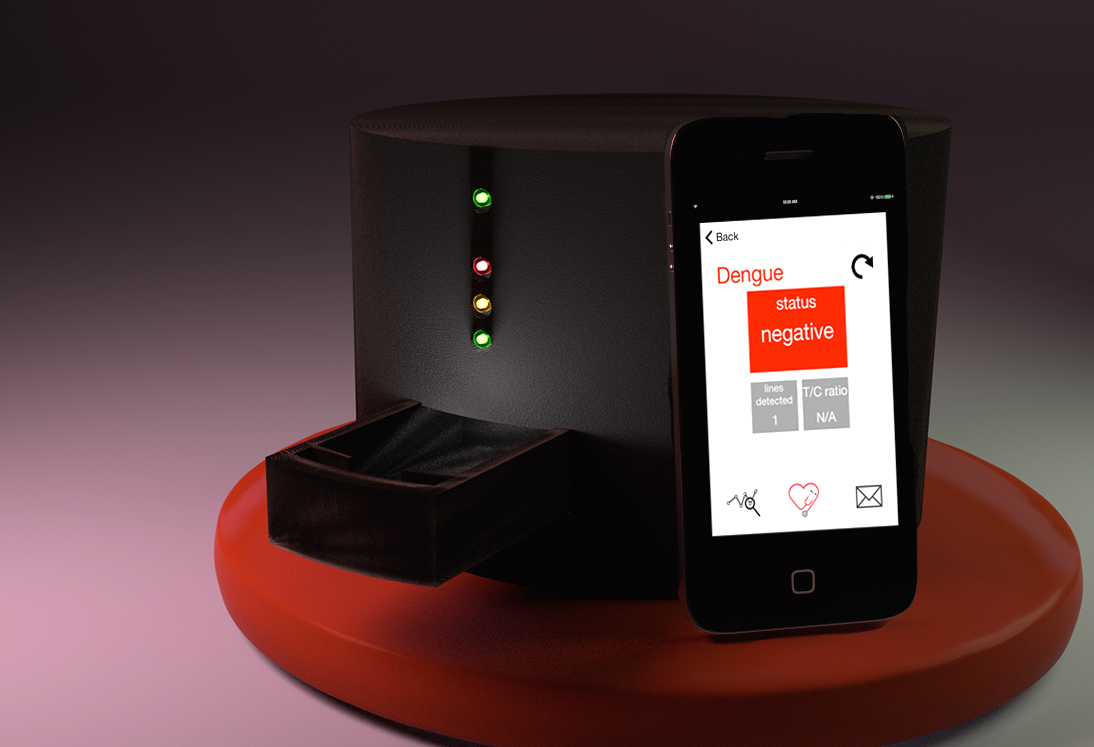NIH provides $2.3M grant for FeverPhone development
By Blaine Friedlander

The National Institutes of Health’s (NIH) National Institute of Biomedical Imaging and Bioengineering has awarded to Cornell a four-year, $2.3 million grant to develop FeverPhone, which will diagnose six febrile diseases in the field: dengue, malaria, chikungunya, typhoid fever, leptospirosis and Chagas’ disease. Faculty members David Erickson and Saurabh Mehta will lead the team.
U.S. Sens. Charles Schumer, D-N.Y., and Kirsten Gillibrand, D-N.Y., announced the first year of the federal grant ($611,617) June 20.
Once developed, FeverPhone – hardware and software, working in combination with a smartphone or tablet – will provide a real-time, rapid and accurate diagnosis using a drop of blood to differentiate and identify specific pathogens. This represents a shift from basing field decisions on apparent syndromes or clinical judgments.
“As we face an alarming rise in dangerous illnesses like Zika, both in the U.S. and around the world, it is crucial that our medical professionals have the best tools at their disposal to track, treat and prevent disease. These cutting-edge scientists at Cornell University are on the cusp of transforming our medical industry by developing the mobile technology that can provide health care workers the most up-to-date diagnosis information at their fingertips,” Schumer said.
Gillibrand said: “These funds are a critical investment that would help advance the scope of medical analysis – identifying and diagnosing the causes of serious illnesses and diseases. This collaboration in medical research would help increase response time and provide personalized treatment options for patients. Cornell University is at the forefront of medical research and development, and its cutting-edge programs help expand health care access to families in need of health services.”
Tech tools to tackle global health problems
Cornell technologies such as FeverPhone and NutriPhone rely on ubiquitous, easy-to-use devices to solve nutritional and health challenges in places where the resources are spare.
Seeking collaborations, faculty members Saurabh Mehta and David Erickson have reached across disciplines to launch the Institute for Nutritional Sciences, Global Health and Technology (INSiGHT), a project supported by Cornell’s Division of Nutritional Sciences and College of Engineering.
INSiGHT aims to develop advanced diagnostic tools to allow health workers, researchers and policymakers with minimal resources to address public health problems.
“We’re at a really important convergence of mobile and health care technologies, and it is these types of collaborations that can really move things forward,” Erickson said. “Our goal with INSiGHT is to provide a clearinghouse to make more of these interdisciplinary efforts a reality.”
Dr. Saurabh Mehta, associate professor of global health, epidemiology and nutrition in the Division of Nutritional Sciences in the College of Human Ecology, and a principal investigator on the grant, explained its global importance: “Acute febrile illnesses – such as malaria and dengue – are responsible for substantial morbidity and mortality around the world, and this problem carries imposing economic cost, primarily in developing countries. The FeverPhone will help diagnose common causes of fever from a drop of blood in a few minutes to enable appropriate management and treatment.”
David Erickson, professor in Cornell’s Sibley School of Mechanical and Aerospace Engineering, in collaboration with Mehta will create the FeverPhone, and test it in Ecuador partnering with Washington B. Cárdenas, head of the biomedicine laboratory at the Escuela Superior Politécnica del Litoral (ESPOL) in Ecuador, and Dr. Timothy Endy, professor of medicine at SUNY Upstate Medical University.
The team will develop an app for a smartphone or tablet to work in conjunction with a small blood tester – called Tidbit – that looks similar to a countertop coffee maker and transmits its data wirelessly to the smartphone for analysis.
“Imagine a glucose tester for your smartphone, where you can test for dengue instead of measure glucose,” said Erickson. “Hospitals traditionally require as much as 24 hours to get test results. With FeverPhone, we will have an actionable diagnosis in about 15 minutes.”
The research team will perform a field validation at an existing infectious diseases monitoring site in Guayaquil, Ecuador, and the system will be validated and ready for FDA approval when the research is complete.
“A common feature of neglected tropical diseases, such as dengue, malaria, chikungunya, Zika and other viral and non-viral diseases, is its disproportionate burden on resource-limited countries – where technology for surveillance, basic biomedical research, diagnosis and treatment are constrained,” said Cárdenas.
While the Zika virus was not included in this specific grant, as the application was submitted before the current outbreak, the technology potentially can be expanded to include it, said Mehta.
“We’re at a really important time in the convergence of mobile and health care technologies,” said Erickson. “It’s this type of research funding that can enable the multidisciplinary collaborations between engineers and experts in infectious disease that can really move things forward and have long-term impacts on human health.”
Media Contact
Get Cornell news delivered right to your inbox.
Subscribe